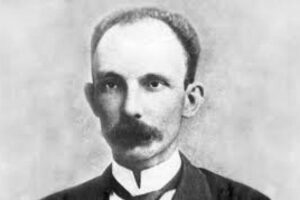The poet, essayist, journalist and founder of the Cuban Revolutionary Party, described as an Apostle of this nation’s independence, met his death in Dos Rios, in the former Oriente province, when in his first battle, he was hit by a close enemy rifle fires from which he received several bullet shots.
Despite the recommendation by Maximo Gomez, General in Chief of the Liberation Army, to remain in the rearguard, Marti went to the front accompanied by his assistant, because his ethics and sense of duty did not allow him to lag behind those whom he had called to combat.
One day before his death, in a letter addressed to his close friend Manuel Mercado, he wrote: “(…) I am already in danger every day of giving my life for my country (…) to prevent in time with the independence of Cuba that the United States spread over the Antilles and fall, with even more force, on our lands in America.”
His early death was a hard blow for the independentist revolution initiated on February 24, 1895, but his personal virtues and emancipatory, Latin Americanist and anti-imperialist legacy transcended in Cuba’s struggles for its definitive independence.
Marti was a Cuban of universal projection who surpassed the frontiers of his era and became the greatest Latin American political thinker of the 19th century.
mh/iff/jf/evm









